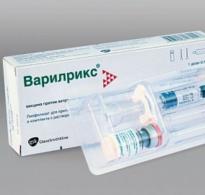Притяжательные местоимения в английском. Упражнения
Pronouns.
Упр. 1.1. Вставьте подходящие по смыслу личные местоимения.
1. Ben is a little boy. … is six.
2. Jane is a house-wife ( домохозяйка ). … is lazy ( ленивая ).
3. Max is a soldier. … is brave.
4. Lily is a young woman. … is very beautiful.
5. Alice is late. … is in a traffic jam (в дорожной пробке ).
6. Nick and Ann are far from Moscow. … are on a farm.
7. This is Ben"s room. … is nice.
8. These are new books. … are interesting.
9. This is Elsa. … is a student.
10. Nick and Max are students. … are students of a Moscow university.
11. The rooms are small but … are light and warm.
12. The new flat is comfortable but … is far from the university.
13. Jack has many French books. … likes to read French very much.
14. Hans is a new student. … is German.
15. Alice and Jane are new secretaries. … are not lazy.
Упр. 1.2. Вставьте соответствующие личные местоимения в предлагаемых ответах на вопросы.
1. Is your house new? – Yes, … is.
2. Are the students at the English lesson now? - Yes, ... are.
3. Is your university in Green Street? – Yes, … is.
4. Are Helen and Bess your sisters? – Yes, … are.
5. Is Ben"s sister an engineer? – Yes, … is.
6. Are the pencils red? – No, … are not.
7. Is this room comfortable? - No, … isn"t.
8. Are the textbooks on the shelf? - Yes, ... are.
9. Does the girl often visit the museum? – No, … doesn"t.
10. Does this pen write well? – Yes, ... does.
11. Is Ben on holiday now? – No, … isn"t.
12. Is Helen nice? - Yes, … is.
13. Are you an engineer? - Yes, … am.
Упр. 1.3. Замените выделенные слова личными местоимениями в объектном падеже.
1. I like Nick .
2. We like Bess.
3. He likes ice-cream .
4. Can you show the pictures to Ben ?
5. You can tell Helen my e-mail address.
6. Are you interested in football ?
7. I want to buy two bottles of milk for Bess .
8. Do you want to play tennis with Ben ?
9. We must speak to Nick .
10. You should invite Helen and Bess to your house for dinner.
11. Do you know Mary ?
12. Tell Nick about your plan .
13. I see my friends every day.
Упр. 1.4. Вставьте подходящие по смыслу личные местоимения в объектном падеже.
1. Where is Nick? I want to play tennis with … .
2. Bess is here. Do you want to speak to … ?
3. My sister speaks French. She learns … at school.
4. Look at that man. Do you know … ?
5. Do you want to read this newspaper? I can give … to … .
6. If you see Ben and Bess, please, don"t tell … anything.
7. We want to phone Helen and invite … to the party.
Упр. 1.5. Замените выделенные слова личными местоимениями в именительном или объектном падеже.
1. The vase is on the table.
2. Mother often sends Ben to buy milk.
3. Are Bess and Helen ready to do the work ?
4. Nick and Ben spend their holidays at the seaside.
5. The man is in the park.
6. The managers are not at work now.
7 . Helen and I are good friends.
8. Is Ben at the lesson now?
9. Where is the calculator ?
10. The newspapers are on the table.
11. The child is in the garden with his mother.
12. Our parents are always glad to see us.
13. My brother and I are good football players.
14. Bess knows Ben.
15. I see the picture very well.
16. The students have lectures every day.
17. The boy plays football every Sunday.
18. The teacher asks the students .
19. The students write tests every week.
20. Look at the picture !
21. I have the book at home.
22. Max wants to speak to Helen.
Упр. 1.6. Замените выделенные слова притяжательными местоимениями.
1. This is Ben"s room.
2. This is Helen"s hat.
3. Here is my parents" house.
4. Nick"s mother is an economist.
5. Where is my brother"s bag?
6. I like Helen"s car.
7 . Ann"s books are on the table.
8 This student"s sister is my friend.
9. My sister"s house is not far from Ben"s house.
10. Where is the children"s room?
11. Ann"s brothers study at the university.
12. These boys’ fathers don"t work at the factory.
13. Here is my sister’s flat.
Упр . 1.7. Вставьте притяжательные местоимения .
1. Is your bag new? - Yes, … bag is new .
2. I like … hat, Ann.
3. Don"t plant this tree! … branch is broken.
4. Max, you have a new job. Do you like … new job?
5. … friends always tell me everything.
6. Our dog likes to run after ... tail.
Упр. 1.8. Измените следующие предложения по образцу, употребляя абсолютную форму притяжательных местоимений.
Образец :
This car is my car.
This car is mine.
1. This calculator is my calculator.
2. Is this bicycle your bicycle?
3. These hats are her hats.
4. This room is their room.
5. This dog is our dog.
6. My flat is more comfortable than your flat.
7. Our house is near their house.
8. Which of the dictionaries is your dictionary?
9. Is this book his book?
10. Whose cat is this? Is it her cat or his cat?
Упр. 1.9. Выберите подходящее притяжательное местоимение.
2. This is our car. It is (our, ours).
3. These are Mary"s books. They are (her, hers).
4. White is (my, mine) favourite colour.
5. You can"t have this book. It is not (your, yours).
6. (Her, Hers) house is big.
7. Is this (your, yours) coat? - No, it is not (my, mine).
8. Are these your friends" books? - Yes, they are (their, theirs).
9. That is (our, ours) house. It is (our, ours).
Упр. 1.1 0 . Измените предложения по образцу, употребляя указательные местоимения во множественном числе. Сделайте другие необходимые изменения.
Образец:
This girl is a student.
These girls are students.
That boy is brave.
Those boys are brave.
1. This book is French.
2. This girl is in the garden.
3. That map is old.
4. This student is from Great Britain.
5. That flower is beautiful.
6. This is my bag.
7. This is a French text.
8. That room is nice.
9. This film is interesting.
1. Выберите из скобок подходящее местоимение. Переведите предложения.
1. Whose slippers are these? Are they … (my, mine) or … (your, yours)? – They are … (her, hers).
2. … (Our, Ours) car is cleaner than … (their, theirs).
3. Look at this girl. She is … (his, him) wife.
4. It’s not … (her, hers) lipstick. … (Her, hers) is darker.
5. … (My, Mine) life, … (my, mine) rules.
6. Was … (your, yours) trip exciting? — … (My, Mine) was boring.
7. Can I use … (their, theirs) hair-drier? — … (Our, Ours) is out of order.
8. Mrs. Novak is a friend of … (his, him).
9. Sometimes she waters … (my, mine) flowers and I water … (her, hers).
10. I remember the street but I don’t remember … (it, its, her, his) name.
2. Употребите подходящее притяжательное местоимение (my, our, your, his, her, its, their).
1. You should play with … own toys.
2. Robert couldn’t use … notebook because it was broken.
3. The funny cat tried to catch … tail.
4. I hope you’ll enjoy … meal.
5. Anna drove … children to school.
6. I had … chest X-rayed.
7. We can bring … own instruments.
8. They often go to the Crimea because they love … nature.
9. She can’t find … glasses.
10. He didn’t give me … number.
3. Найдите ошибки в некоторых предложениях.
Например: Mine brother lives in Turkey. – My brother lives in Turkey. (Мой брат живет в Турции.)
1. It isn’t ours dog.
2. His watermelon was very sweet.
3. How many books are there in hers library?
4. The elephant hurt his leg.
5. Is this room your?
6. It’s my birthday, not yours.
7. Theirs teacher is younger than ours.
8. She is a friend of my.
9. The world is at her feet.
10. Did you like mine present?
Ответы:
1. mine – yours – hers (Чьи это тапочки? Мои или твои? – Её.)
2. Our – theirs (Наша машина чище, чем их.)
3. his (Посмотри на эту девушку. Она – его жена.)
4. her – Hers (Это нее её помада. Её темнее.)
5. My – my (Моя жизнь, мои правила.)
6. your – Mine (Твоя поездка была интересной? – Моя была скучной.)
7. their – Ours (Можно попользоваться их феном? – Наш сломался.)
8. his (Миссис Новак – его друг.)
9. my – hers (Иногда она поливает мои цветы, а я поливаю её.)
10. its (Я помню улицу, но не помню ее название.)
1. your (Тебе следует играть со своими собственными игрушками.)
2. his (Роберт не мог пользоваться своим ноутбуком, так как он был сломан.)
3. its (Смешной кот пытался поймать свой хвост.)
4. your (Надеюсь, вам понравится ваша еда.)
5. her (Анна отвезла детей в школу.)
6. my (Я сделал рентген грудной клетки.)
7. our (Мы можем принести свои собственные инструменты.)
8. its (Они часто ездят в Крым, потому что любят его природу.)
9. her (Она не может найти свои очки.)
10. his (Он не дал мне свой номер.)
1. It isn’t our dog. (Это не наша собака.)
2. Верно (Его арбуз был очень сладким.)
3. How many books are there in her library? (Сколько книг в её библиотеке?)
4. The elephant hurt its leg. (Слон повредил свою ногу.)
5. Is this room yours? (Эта комната твоя?)
6. Верно (Это мой День рожденья, а не твой.)
7. Their teacher is younger than ours. (Их учитель моложе нашего.)
8. She is a friend of mine. (Она моя подруга.)
9. Верно (Мир у её ног.)
10. Did you like my present? (Тебе понравился мой подарок?)
Упражнения составили наши английского языка
Притяжательные местоимения мы используем в своей речи каждый день. Это моя кошка, их собака, ее порция мороженого, его портфель, их дочка… Практически в каждом предложении мы увидим местоимения. Поскольку теория на эту тему уже изучена, сегодня мы приступим непосредственно к практике, чтобы закрепить полученные знания. Помните: изучая притяжательные местоимения в английском языке упражнения помогут вам запомнить теорию гораздо эффективнее, чем даже сотня повторений. Поэтому сразу к делу! Нас ждут интересные задания, которые будут достаточно легкими даже для детей.
Упражнения на притяжательные местоимения сравнительно легкие. А если сначала повторить основные тонкости перевода, то работа над заданиями будет совсем легкой. Итак, к вашему вниманию таблицы с притяжательными местоимениями, которые расставят все особенности перевода по полочкам.
Первая форма притяжательных местоимений
| My | Мой, мое, мои, моя |
| His | Его |
| Her | Ее |
| Its | Его, ее |
| Our | Наш, наше, наша, наши |
| Your | |
| Their | Их |
Вторая форма притяжательных местоимений
| Mine | Мой, мое, мои, моя |
| His | Его |
| Hers | Ее |
| Ours | Наш, наше, наша, наши |
| Yours | Твой, твои, твоя, твое; ваш, ваша, ваше, ваши |
| Theirs | Их |
Как вы уже знаете, несмотря на то, что притяжательные местоимения (Possessive Pronouns) имеют две формы, отвечают все они на один и тот же вопрос => whose? То есть Чей? Чья? Чье? Чьи? При этом хотим напомнить, что абсолютная форма притяжательных местоимений отличается от первой (атрибутивной) как по правописанию, так и по роли в предложении: после абсолютной формы существительные не следуют , они отсутствуют.
Примеры :
That is his cup => Это его чашка (притяжательное местоимение в атрибутивной форме his + существительное cup )
Но! That cup is mine => Эта чашка – моя (притяжательное местоимение в абсолютной форме mine, после которого не нужно ставить существительное).
Итак, когда теорию мы повторили, можем смело приступать к упражнениям. Теперь вы сможете проверить свои знания на практике. Вперед!
Упражнение 1. (притяжательные местоимения)
Правильно расставьте притяжательные местоимения, выбрав из предложенных в атрибутивной форме (my, his, her, its, our, your, their):
my his her our their
Book but she denied to return it to him.
I saw that picture in
his our its her their
House but don’t remember whether it was her property or just a gift.
I forgot my glasses in
your my their her our
Car. Probably they will return it to me tomorrow.
The teacher was listening to
my their your our its
Answer quite patiently but it was really silly one.
His Its Their Your Her
Jacket I found in
her his my their our
My Your His Our Their
Parents were absent while
his my their your our
Were at school.
Обратите внимание! В этих предложениях притяжательные местоимения можно менять местами. Например, в последнем предложении Possessive Pronouns можно поменять местами без ущерба для контекста. А вот, например, в третьем предложении выбор будет только один, поскольку есть слово-идентификатор they.
Продолжаем употреблять притяжательные местоимения
Упражнение 2. (притяжательные местоимения)
Напишите правильный вариант из представленных в скобках:
My grandfather has a cat. colour is warm red.
She saw dress washing in washing machine. The dress in washing machine was (her, hers, its).
I saw him wearing best shirt. It suits him so much!
cat sleeps when it has done all insidious things.
They live in a big city. city is so nice I would like to visit it this summer!
I like dress more than .
I have a rabbit. The rabbit is .
plane is a luxury one as well as pleasure boat.
My sister has a doll. doll is very expensive.
Her brother is very naughty. Only trousers costs 5 times more than my the most expensive dress!
Упражнение 3. (притяжательные местоимения)
Расставьте правильно местоимения в атрибутивной и абсолютной форме:
I have a dress. The dress is .
Dress is very nice.
Her friend has a new lipstick. The new lipstick is .
Lipstick is of dark wine colour.
This shirt is .
Shirt is from the newest collection.
The business is
ГБПОУ СО «ТПК»
Possessive Pronouns
Exercise 1
Fill the gaps with possessive pronouns.
Nick has got a dog. . . . dog is clever (умный).
Have you got a room? Is . . . room big?
Ann has a lamp. Is it ... lamp?
I have got a book. . . . book is interesting.
They have got a good room. Is . . . room big?
Exercise 2
Choose the correct possessive pronouns.
1. Is this (your / yours) book?
2. It"s (their / theirs) door, not (our / ours).
3. They"re new pupils and I don"t know (their / theirs) names.
4. (Му/ Mine) flаt is bigger than (her / hers), but(her /hers) is nicer.
5. That"s not (my / mine) book. (Му / Mine) is new.
6. They took (our / ours) books and we took (their / theirs).
7. Are these pencils (her / hers)?
8. Is this (your / yours) house or (their / theirs)?
Exercise 3
Choose the correct possessive pronouns.
Is this yours / your daughter?
It"s theirs / their problem, not our/ours.
Are these her / hers shoes?
We"re going swimming with some friends of our/ours.
Is it yours / your article about spiders? -No, it"s not my / mine.
We know their / theirs address but they don"t know our / ours.
That"s not my / mine wallet. Mine / my is black.
His cottage is bigger than her / hers but her / hers is nicer.
My / mine parents live in Samara region, and your / yours?
Exercise 4
Complete the sentences with correct possessive pronouns.
This is my mum. … name"s Jess.
These are my sisters. … names are Mary and Dina.
These are my parents. … names are Tanya and Bob
This is my cousin. … name"s Helen.
This is my cousin. … name"s Fred
These are my sisters. … names are Tina and Nina.
This is my aunt. name"s Pam.
Exercise 5
Complete the sentences with correct possessive pronouns.
It is my house. It is… .
It is his house. It is … .
It is their house. It is … .
It is her house. It is … .
It is our house. It is … .
It is your house. It is … .
Exercise 6
Insert the correct possessive pronouns.
She is doing … homework.
We have … English lesson in the evening.
He is putting on … rain-coat.
I often do … homework with … friend.
This lady’s surname is Smith. What’s … first name?
Please sit down. Is it … document?
They do … morning exercises in the open air.
This table is too small. What’s … length?
Exercise 7
Insert the correct possessive pronouns.
Nick: Whose sunglasses are these?
Mary They"re Amy"s, I think. Yes, they"re … .
Paul: Whose baseball cap is this?
Amy: That"s … too! Thanks.
Mary: Ugh! Whose dirty towel is this?
Nick: Ask Paul. I think it"s … .
Paul: Yes, it is. Thanks. You"ve got a great T-shirt, Amy!
Mary: Thanks. I borrowed it from my big sister. So it"s … really.
Nick: What about this umbrella?
Paul: Don"t be silly, Jason! You brought it, so it must be … .
Mary: Does this beach ball belong to us?
Nick: No, it isn"t … Those kids over there were looking for a ball, so it"s … probably.
Exercise 8
Choose the correct possessive pronouns.
1. Whose slippers are these? Are they … (my, mine) or … (your, yours)? – They are … (her, hers).
2. … (Our, Ours) car is cleaner than … (their, theirs).
3. Look at this girl. She is … (his, him) wife.
4. It’s not … (her, hers) lipstick. … (Her, hers) is darker.
5. … (My, Mine) life, … (my, mine) rules.
6. Was … (your, yours) trip exciting? - … (My, Mine) was boring.
7. Can I use … (their, theirs) hair-drier? - … (Our, Ours) is out of order.
8. Mrs. Novak is a friend of … (his, him).
9. Sometimes she waters … (my, mine) flowers and I water … (her, hers).
10. I remember the street but I don’t remember … (it, its, her, his) name.
Possessive Pronouns page 4 from 4
1. Fill the gaps with personal or reflexive pronouns.
1 . He is quit right, I agree with … completely.2 . I looked at … in the mirror and left the house in a very good mood.
3 . “Who is it?” - “It’s … may I come in?”
4 . Mr. Lloyds is very fat … weighs over a hundred kilos?
5 . … introduced his wife to the quests.
6 . Where shall … meet, Bob?
7 . James took the book and opened ….
8 . We don’t dress … for dinner here.
9 . I taught … to play the quitar.
10 . Selfish people only care about …
2. Put “some”, “any” or “no”.
1 . He does his homework without … difficulty.2 . This yeas all the apples are red, we are going out this morning to pick …
3 . I’d like … water, please.
4 . There weren’t … tomatoes left.
5 . I won’t go with you. I have … free time.
6 . There aren’t … students at the moment.
7 . Sorry, I have … matches.
8 . Do you have … money?
9 . The box was empty. There was apples in it.
10 . Pour me … milk, please.
3. Translate the sentences into English.
1 . Она ничего не сказала.2 . Он посмотрел на нее с удивлением.
3 . Она не захотела пойти с ним.
4 . Я попросил его налить немного молока.
5 . Когда ему было 3 года, он мог сам одеваться.
6 . Простите, но у меня нет времени.
7 . Какая красивая картина! Она твоя?
8 . Возьми свою чашку. Эта чашка - моя.
9 . Его мнение отличается от моего.
10 . Сегодня вечером придет кто-нибудь?
4. Complete the sentences using possessive pronouns (my, your, his, her, our, their).
1 . I left … car in the garage.2 . Mary hung … coat on the peg.
3 . Jack had … hair cut.
4 . Neil and David ate … supper.
5 . I hope you enjoy … holiday.
6 . We’ll invite you round to … house sometime and complete these by addig a possessive with own.
7 . You must make up … own mind.
8 . The children had to cook … own supper.
9 . Bill borrowed Jenny’s car … own can was being repaired.
10 . I’ll bring … own sheets and towels.
11 . Every dog had … own special basket to sleep in.
12 . You should do … own washing up.
Правильные ответы:
1. Заполните пропуски личными или возвратными местоимениями.
1. him | 2. myself | 3. me | 4. he | 5. he | 6. we | 7. it | 8. ourselves | 9. myself | 10. themselves2. Поставьте “some”, “any” или “no”.
1. any | 2. some | 3. some | 4. any | 5. no | 6. any | 7. no | 8. any | 9. no | 10. some3. Переведите предложения на английский язык.
1. She said nothing.2. He looked at her with surprise.
3. She didn’t want to go with him.
4. I asked him to pour some milk.
5. When he was 3 years old, he could dress him self.
6. Sorry, but I don’t have any time.
7. What a nice picture! Is it yours?
8. Take your cup. This one is mine.
9. His opinion differs from mine.
10. Will anybody come tonight?





